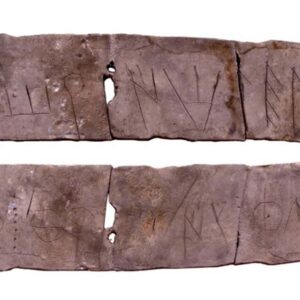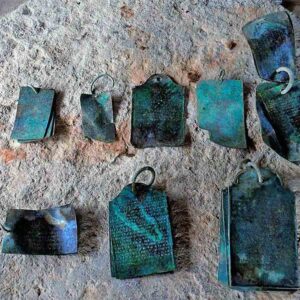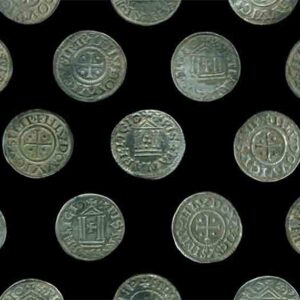Up to date
2 February, 2024 – 21:55
Cecilia Bogaard
Who Have been the Biblical Amalek Folks?
- Learn Later
When you’ve been following the information, you’ll have heard references to using the time period Amalek which was cited by South Africa on the Worldwide Courtroom of Justice in The Hague in January 2024. However what does this time period imply and why did its use in public discourse set off alarm bells?
Amalek inside Biblical Scripture
Throughout the Bible, Amalek is described as an historical tribe of the southern Levant. Whereas no archaeological proof has been definitively attributed to their existence, the Amalek seem in a number of Biblical tales and have come to characterize the archetypal enemy of the Israelites.
Amalek is first talked about within the Bible in Genesis 36:12. Described as being the “chief of the Amalek,” he’s listed as a grandson of Esau, the brother of Jacob, by means of his son Eliphaz and his concubine Timna.

Portray of the Biblical story of Joshua’s combat towards the Amalek, by Pauwels Casteels. (Public domain)
Depicted as a nomadic tribe, the Amalekites are chronicled within the Exodus narrative as assailants who ambushed the Israelites at Rephidim en path to the fabled Promised Land. Led by Moses, this monumental journey—which is a seminal occasion and a central narrative in each Jewish and Christian traditions—sought the divine inheritance pledged to their ancestors.
- Is There Scientific Proof for the Exodus?
- Has the Biblical Moses Been Recognized in Secular Egyptian Data?
In accordance with the Biblical story described in Exodus, Moses instructed Joshua to steer the Israelites in battle, whereas he ascended a close-by hill with Aaron and Hur. Legend has it that Moses held up the workers of God and, so long as he held up his palms, the Israelites prevailed. When weary, Aaron and Hur supported him till sundown, securing victory for the Israelites.
In later Biblical narratives, the enduring animosity between the Amalekites and the Israelites is vividly portrayed. Amalekites are depicted as a persistent menace, launching assaults and raids on their territory. In a single story, their raid of Ziklag prompted David and his males to pursue and defeat them.

A Nineteenth-century depiction of the Biblical story of Moses holding the workers of God because the Israelites defeated Amalek. Victory O Lord! By John Everett Millais. (Public domain)
Throughout the Ebook of Samuel, God commanded King Saul to enact a marketing campaign towards the Amalek in retaliation. “King Saul is instructed by God to utterly annihilate the entire Amalekites, together with youngsters, infants, animals, males, ladies, everybody,” defined Professor Atalia Omer in an ABC interview. Opposite to those directions, the story claims Saul spared King Agag and a few of the greatest livestock, for which he was rebuked and misplaced his kingship.
This biblical story is normally instructed throughout Shabbat previous the Jewish vacation of Purim, which commemorates the Jewish individuals’s salvation from Haman’s plot to exterminate the Jews. Throughout the Ebook of Esther, Haman—who descended from the Amalekite King Agag—is recognized as an official of the Persian Empire throughout the reign of King Xerxes I. The inference is evident; Saul’s failure to fulfil God’s directions led to continued hazard for the Jews.

Nineteenth-century portray of the Biblical story of Esther Denouncing Haman, by Ernest Normand. The story of Esther denouncing Haman is a pivotal second, commemorated throughout the Jewish pageant of Purim. (Public domain)
The Weaponization of Biblical Literalism and Amalek in Fashionable-Day Discourse
Within the Midrash—a type of rabbinic interpretive Jewish literature elucidating the Hebrew Bible for non secular understanding—sure interpretations counsel that the Amalekites used witchcraft, magic or occult powers, that are practices explicitly prohibited within the Torah and disapproved of in Christian teachings. These portrayals underscore the non secular battle between the forces of excellent and evil, with the Amalekites standing in opposition to God.
Whereas the Amalek have come to characterize the quintessential adversary of the Jews, Rabbi Jill Jacobs defined that these references are normally interpreted metaphorically, as a name to stamp out evil inclinations inside. However, non secular extremists have related Amalek with fashionable foes, together with the Nazis and ISIS. Lately, amongst sure teams the time period has even come to embody the Palestinians, though such interpretations are extremely contentious.
None of that is new. In an article entitled “Genocide: A Commandment of the Torah,” Rabbi Israel Hess used the story of Amalek to justify wiping out Palestinians. In the meantime, in 1994 an extremist murdered 28 Muslims praying at a mosque within the West Financial institution on Purim. In accordance with Mother Jones, his grave has grow to be a pilgrimage web site for the Israeli far proper.
- Struggling the Conquerors: 5 Worst Genocides in Historic Historical past
- Why We Ought to Ditch the Historic Time period “Indian Giver” Right this moment
So, to the current references to the controversial time period cited by South Africa on the Worldwide Courtroom of Justice in The Hague in January 2024. Particularly, Amalek was talked about of their case in regards to the utility of the Conference on the Prevention and Punishment of Crime of Genocide in Gaza.
The time period “Amalek” was utilized by Benjamin Netanyahu, Prime Minister of Israel, in a speech delivered after the Hamas-led assault on Israel in October 2023. “You will need to keep in mind what Amalek has executed to you, says our Holy Bible,” acknowledged Netanyahu in his televised assertion. “And we do keep in mind, and we’re combating.”
Although Israel rejected South Africa’s claims that using the time period Amalek was a name to genocide, reactions to its use in modern-day discourse spotlight the necessity to train warning when evoking historic and Biblical terminology. This care is important to keep away from any incitement to violence and additional escalation in historic tensions.
Phrases matter. And the calculated weaponization of historical past and Biblical narratives for political function is a harmful sport. The truth is, the Center for Constitutional Rights’ (CCR) criticized using this language arguing that the Amalek commandment is tantamount to “divinely mandated genocide.” This explains why its use by Netanyahu and different Israeli officers has sparked widespread concern worldwide.
High picture: Element from Nicolas Poussin’s depiction of the Biblical story of Joshua’s victory over the Amalek. Supply: Public domain
By Cecilia Bogaard





